*
Very few languages can trace the root meaning of soil, of
dirt, to something tainted.
Dirt, a morally unclear substance.
To soil: to make dirty.
My native language (English) is one of these few languages, and I
wonder if that is where things went wrong* here?
Other languages can trace soil
to mother,
to grounded,
to burial,
to cyclical.
*By wrong, I mean the long-held belief that a sterile field is what’s
best for a new crop of corn. That diversity equates to something
undesirable,
to messiness.
7 (for my grandmother, Patsy)
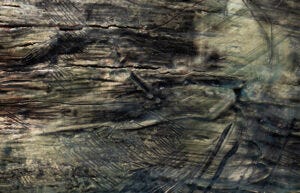
One of my first memories is of an earthworm:
my grandmother placing a handful of soil and a wriggling
pink worm into my very small hands;
That’s all, nothing more than this, but I remember the warm
way the dirt smelled and the soft strength of the strange
creature I was holding.
The first day I met Trey, he dug up shovelful after shovelful of
beautiful earth. He broke it apart in his hands to show me (warm
way the dirt smelled) the sheer number of earthworms digging
tunnels
through his fields.
I was impressed – this was the point.
Since that day, we have looked at, held, tens of earthworms. If
there are as many worms underneath the surface of each field as
estimated (very possibly up to 1,750,000 per acre, depending on
the fertility of the soil), their collective weight far exceeds that of
the equipment rumbling above their burrows. I speak to the men
who work on the farm, and their thrill for the small worm is
direct / charming / honest. It reminds me of something that
the poet Ross Gay said:
It makes me very nervous if you don’t have a relationship
with a worm.
I agree.
9
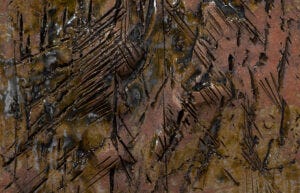
The subtleties of geography were not built for the long arms and
wide tires of the machines that are used to cultivate the land:
Small gullies (gully meaning throat, a channel worn by
water),
gentle depressions indicating ancient beaver ponds,
the headwaters of a stream (always damp despite the
years of tillage).
What is lost in actions of efficiency?
What are we missing by not being close?
(Or what am I missing by assuming that industrial
agriculture, that these large machines, equate to a lack of
closeness?)
Austen Camille
Austen Camille is Canadian-American multidisciplinary artist, writer, builder and gardener. Camille primarily makes site-responsive public work that aims to facilitate relationships with local environments. Camille received their MFA in Painting from the Tyler School of Art and Architecture (Temple University) in 2020.
These poems were written while Camille was in residence with the Kent Cultural Alliance, Chestertown, MD, 2024, and funded in part by AgArts USA.
Her website is www.austencamille.com.
* What follows are selections of a longer poem. These selections were first published in The Blazing Star Journal on the AgArts website:
I am honored to be a member of the Iowa Writers Collaborative. Please read and support our work through the IWC Sunday Round-Up:



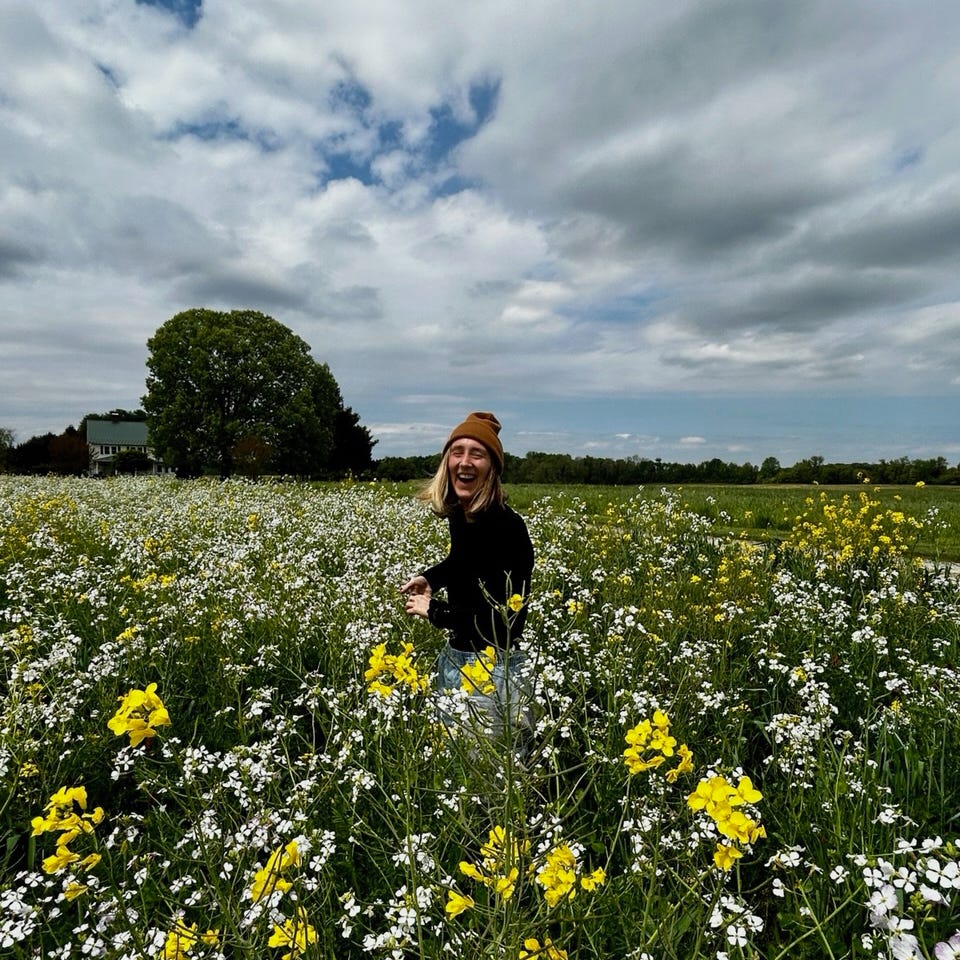
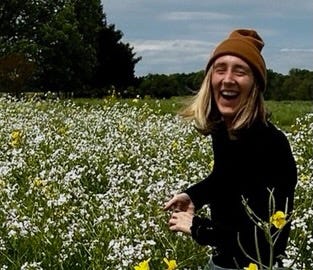
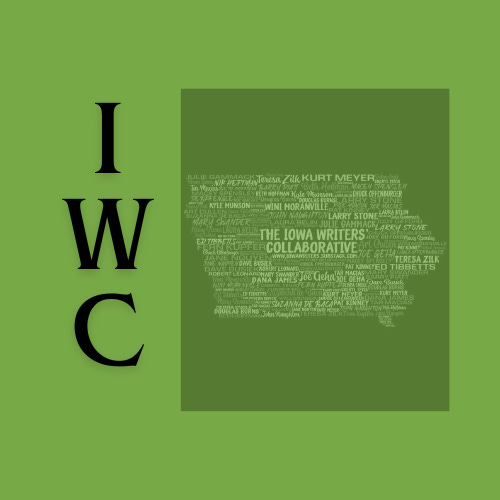
I hadn't thought of the soil/dirt definitions in that way before. You could also add "ground"...in the sense of being contained/isolated. It expresses the way many farmers view their land--that what they do won't impact those downstream. Great work!
I love these ponderings of words, their derivations, their revelations. Thank you Austen Camille!